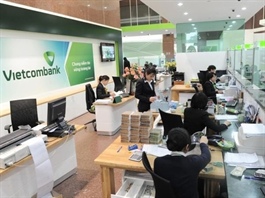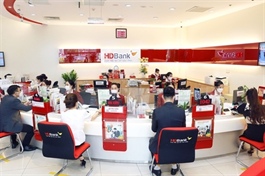Tech-driven embedded finance disrupting Vietnam’s financial landscape
Tech-driven embedded finance disrupting Vietnam’s financial landscape
As technology evolves and the Vietnamese economy matures, more innovative fintechs are embracing the benefits of next-generation technology and unique business models to reach underserved populations and provide them with the means to access banking and financial services quickly and conveniently. Pham Quang Minh, general manager at Mambu Vietnam, digs into such fresh business models, as well as the outlook for the country's digital technology.
Embedded financial services such as buy now, pay later (BNPL) and other technology-driven offerings are having a significant impact on the financial landscape in Vietnam, and are helping to improve financial inclusion by providing access to affordable products and services for individuals and businesses that have long been excluded from the formal banking sector.
Fintechs improving access to financial services
Vietnam has made significant progress when it comes to increasing financial inclusion recently. The State Bank of Vietnam’s 2020 statistics indicate that around 70 per cent of adults in the country held a bank account, although access to credit was still lacking, with only an estimated 5-6 per cent of the population holding a credit card.
The Vietnamese government, recognising the importance of financial inclusion, designed and launched the National Financial Inclusion Strategy in 2020, which has a target of increasing the percentage of adults with a bank account to 80 per cent by 2025.
Fintech organisations are playing a critical role in achieving these targets by using innovative solutions to increase access to financial services, with a particular focus on making mobile banking and payments simple and seamless by leveraging Vietnam’s high smartphone and internet penetration rates.
Fintech companies are also using smartphone apps and other digital channels to provide other financial services such as remittances, loans, and insurance, creating a simpler and faster way to access the services consumers need and want.
Embedded finance trends take off in Vietnam
Embedded finance, encompassing a range of tech-driven financial services, is experiencing accelerated growth in the nation, driven by the surging digital economy and the country’s young and tech-savvy population.
It refers to the integration of financial services into non-financial products, like a ride-sharing app offering a loan to a driver to purchase a vehicle or a supermarket offering insurance to customers at the checkout.
Embedded finance is experiencing accelerated growth in Vietnam, driven by the surging digital economy and the country’s young and tech-savvy population.
More commonly, technology companies using their own strengths have developed financial solutions for their customers. For example, the tech company Haravan works with banks to provide loans to its customers.
Embedded finance services can measurably help to increase financial inclusion by providing access to a range of financial services for consumers who might not otherwise be able to access them.
A typical case is Cake's digital bank embedded in the Be ride-hailing service, which enables Cake to reach millions of Be drivers and their customers who do not have the ability to use banking services.
Be, at the same time, creates many sub-services and attractive promotions to help retain customers for both partners.
The boom of BNPL
One of the most significant embedded finance trends across the globe is the rise of BNPL services, a type of point-of-sale credit that allows customers to split the cost of a purchase into smaller, regular instalments.
In Vietnam, BNPL is becoming increasingly popular among young people and those with limited access to traditional forms of credit, and there has been a boom in the number of fintech organisations partnering with retailers to offer these services at the point of sale, making it easier for customers to make purchases.
Fundiin is one of the leading players in the BNPL market in Vietnam, offering innovative products and features to enable its customers to purchase the items they want and need, at a time that suits them, on a pre-approved payment instalment plan.
Another example in Vietnam is the retail chains The Gioi Di dong and FPT shop, which have collaborated with fintechs and a number of banks to provide BNPL services for their customers.
While fintechs and other tech-driven organisations have been the first-movers in the nation's BNPL space, we are now seeing Fincos – which have traditionally focused on cash loans – starting to integrate BNPL services as part of their embedded finance strategies.
Strong outlook for Vietnam’s digital economy
Vietnam’s e-commerce market is projected to reach $32 billion by 2025 despite the current global economic climate, which is an indication of the country’s strong outlook.
With low access to traditional forms of credit, innovative services like BNPL and other embedded finance solutions are expected to continue growing at an accelerated rate, as affluent and tech-savvy consumers embrace this approach with enthusiasm.
In fact, the BNPL sector in Vietnam is expected to grow steadily and strongly in the coming years, with BNPL payments in the country expected to reach $2.2 billion in 2023.
As Vietnam’s digital financial services industry continues to mature, we will see more of the country’s established banks get on board with the benefits of technology and partner with agile fintechs to bring consumers new and innovative financial solutions, positioning Vietnam as a leader in digital financial services within the Asia-Pacific region.



















